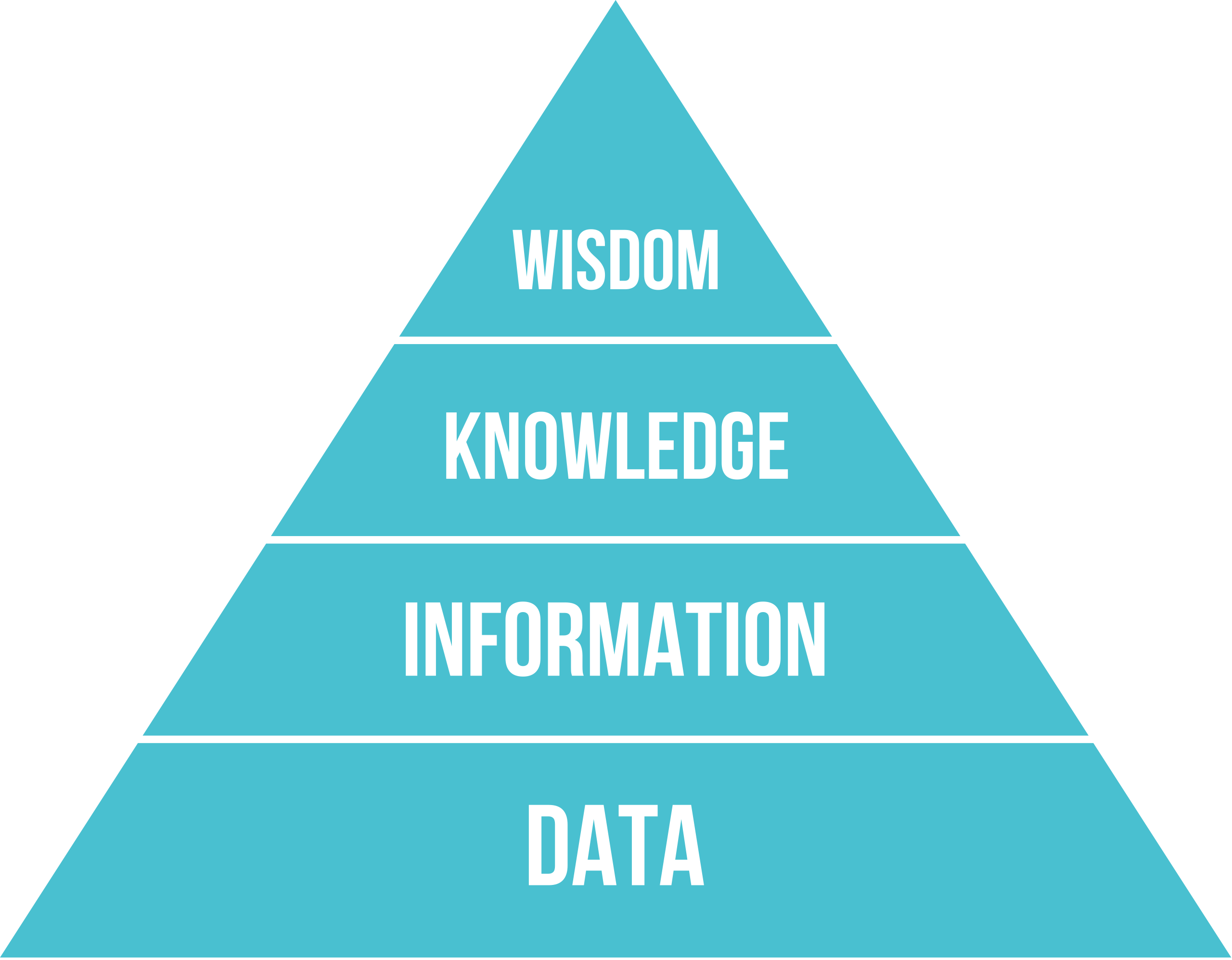Data, information, knowledge, and wisdom are often seen as a straightforward progression. But knowledge is not simply derived from information—it is shaped by curiosity, social interaction, and experience. Understanding how we actually come to know things requires moving beyond rigid models to embrace complexity, uncertainty, and human judgment.
The DIKW model suggests that data can be transformed into information by adding context and structure. This information can then be used to acquire knowledge, understanding, and insight about a particular subject.
Finally, wisdom is the highest level of the pyramid, representing the ability to use knowledge and experience to make sound decisions and judgments.
Hence, “D” – data, “I” – information, “K” – knowledge, and “W” – wisdom.
However, the model is overly simplistic and does not reflect how knowledge is created and shared or the many factors influencing how people understand and use information.

Some of the main reasons why the DIKW model is flawed include the following:
- Linear progression: The model assumes a linear progression from data to information to knowledge to wisdom, which is not always accurate in real-world scenarios.
- Lack of context: The model does not account for the context in which data, information, knowledge, and wisdom are used, which can significantly affect their meaning and value.
- Ignores emotions, subjectivity, and cognitive bias: The model does not consider the role of emotions, subjective human experience, and cognitive bias, which can also play a significant role in understanding and using data, information, knowledge, and wisdom.
- Lack of consideration for power and politics: The model does not consider the role of power and politics in shaping and limiting access to data, information, knowledge, and wisdom.
- Static nature: The model does not consider the dynamic nature of knowledge and wisdom and how they change over time and with new information.
Overall, the DIKW model is limited in its ability to fully capture the complexity and nuances of how information and knowledge are created, used, and understood in real-world contexts.
I mention the model as it has become well-established despite its flaws. It is worth understanding for its instructive value but should not be taken seriously.
We get to knowledge — especially "actionable" knowledge — by having desires and curiosity, through plotting and play, by being wrong more often than right, by talking with others and forming social bonds, by applying methods and then backing away from them, by calculation and serendipity, by rationality and intuition, by institutional processes and social roles.
Most important in this regard, where the decisions are tough and knowledge is hard to come by, knowledge is not determined by information, for it is the knowing process that first decides which information is relevant, and how it is to be used.
Relying on rigid models like DIKW can limit how we think about knowledge. Instead, we should explore different ways of knowing—through curiosity, conversation, and experience. Question assumptions, seek diverse perspectives, and stay open to uncertainty. The best decisions come not from more information alone but from better ways of making sense of it.
Resources
- HBR: The Problem with the Data-Information-Knowledge-Wisdom Hierarchy by David Weinberger
- Article: Debunking the DIKW Pyramid
- Blog Post: Yet Another Myth: The DIKW Pyramid Scheme
- Blog Post: The DIKW Pyramid Must Die!
- Blog Post: Rethinking the DIKW Hierarchy
Posts that link to this post
- Data, Information and Knowledge What's the difference?
POST NAVIGATION
CHAPTER NAVIGATION
Tags: cognitive bias (28) | data (4) | DIKW pyramid (1) | emotions (11) | information (29) | knowledge (64) | wisdom (6)
SEARCH
Blook SearchGoogle Web Search
Photo Credits: DALL-E (Public Domain)
The Gurteen Knowledge Letter is a free monthly newsletter with over 20,000 subscribers that I have been publishing by email for over 20 years.
Learn more about the newsletter and register here.

